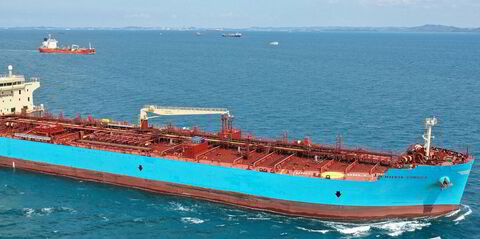Seacon Shipping is shipping out one of its older supramax bulkers as it looks to recycle capital for its extensive newbuilding push.
The Hong Kong-listed shipowner has confirmed the sale of the 57,000-dwt Seacon Yantai (built 2010) for $13.8m in a regulatory filing.
The Qingdao-based shipowner said it expects to achieve a profit of $6.5m from the disposal after tax and expenses.
Seacon also identified the buyer of the Cosco Zhoushan-built vessel as Indonesian-based PT Primatama Energi Mandiri.
Seacon told investors that the net proceeds from the disposal would be used to finance the potential acquisition of vessels and as general working capital of the group.
“The disposal of the vessel is in line with the ongoing strategy of the group to optimise its vessel fleet by maintaining a well-balanced portfolio of vessels,” Seacon Shipping said.
“The directors consider that the disposal represents an opportunity to dispose of the vessel at a reasonable price, which will enable the group to enhance its working capital position, and further strengthen its liquidity.”
Last month, the company arranged lease financing for two 42,200-dwt bulker newbuildings with Suyin Financial Leasing, which is majority-owned by the Shanghai-listed Bank of Jiangsu.
The two ships, which were acquired in April 2023, will be chartered back to Seacon for 120 months and come with purchase options after two years.
The ships, which are under construction at Tsuneishi Shipbuilding, are due for delivery in June and September 2025.
Seacon Shipping recently told TradeWinds that it had made some strategic moves in the past 12 months, including diversifying into tankers by acquiring secondhand ships and ordering a series of chemical and MR tankers.
The company is estimated to have spent $637m on 18 newbuildings and more than $40m on three secondhand chemical tankers.
Seacon is said to be one of the largest third-party ship managers in China, handling about 230 vessels, including tankers, bulkers and gas carriers with clients from the domestic leasing sector, shipyards, and domestic and overseas shipowners.





